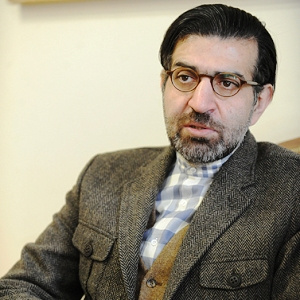Istanbul Meeting: a Negotiation?

The talks between Iran and the P5+1 [five permanent members of the UN Security Council plus Germany] ended on Saturday afternoon in Istanbul, Turkey, and no date for the next round of negotiations have been announced so far. While from the beginning of the talks the Iranian delegation spoke of the positive mood of the talks, Western countries did not hide their dissatisfaction with the course of the dialogue. Catherine Ashton, EU foreign affairs commissioner and chief negotiator representing the P5+1, expressed her discontent with the negotiations on the final day and blamed Iran for setting prerequisites for continuation of the talks.
No details on the content of negotiations have been published so far, but what Western diplomats have stated is that the P5+1 proposed a nuclear fuel swap deal and called for a stronger inspection regime over Iran’s nuclear facilities. On the other hand, Iran demanded that the UNSC sanctions be lifted and Iran’s right to uranium enrichment be acknowledged by West, a stipulation ultimately rejected. Iran’s chief nuclear negotiator Saeed Jalili’s press conference held after the talks was basically a formal statement of the Islamic Republic of Iran’s official stance, and addressed no details of the talks. Several points on the Istanbul talks should be mentioned:
1. The meeting between Iran and P5+1 representatives in Istanbul could hardly be called ‘negotiations’, since there was no intention to entertain concessions or reconciliation by either side. Moreover, in genuine negotiations, both sides agree on an agenda based on which they begin their dialogue. Ahead of the talks, Iran stated that shared interests would be on the agenda, while the P5+1 aimed to talk about Iran’s nuclear program. It was clear that the talks in Istanbul would be fruitless since no shared agenda existed. The meeting in Istanbul could be labeled as a ‘dialogue’, in which each side only elaborated its own stance.
2. What is deduced from the meeting in Istanbul is that P5+1 felt no need to withdraw from its position, believing it had the upper hand with international and unilateral sanctions imposed on Iran and with the damaged inflicted upon Iran’s nuclear facilities by the Stuxnet virus. The Iranian delegation, aware of partial rift between members of the group of six and the fading possibility of military attack had no willing to show flexibility either. Of course, the issues addressed by the Iranian delegation about sanctions –that they are not befitting the dignity of the Iranian nation- and Iran’s right to enrichment enshrined in the Non-Proliferation Treaty (NPT), absolutely hold true. The point overlooked is that both sides were aware of each others’ stances beforehand. Western countries knew that halting enrichment by Iran is impossible, and Iran was also aware that calling for the lifting of sanctions was not a realistic demand. If both sides were actually seeking ‘negotiations’ in its real sense, they needed shared sessions prior to the talks in order to draw up an agenda, based on which the senior representatives would advance the talks. This is a conventional procedure in diplomatic negotiations.
3. The Istanbul meeting showed that both sides believe that time is in their favor, so neither felt any urgency for flexibility and seemed to hope that the other side would withdraw from its stance. A genuine negotiation is one which benefits both sides. In this case, Iran would be allowed to continue its enrichment activities with no obstacles, and the international community would be assured of the nuclear program’s peaceful nature.
Both sides should use the experience of the Istanbul talks to develop an agenda by their experts prior to the next round of talks, pave the way for an agreement, and ultimately seal a mutually beneficial deal through real negotiations.
* Seyyed Mohammad Sadegh Kharrazi is Iran’s former ambassador to France and a former nuclear negotiator.

